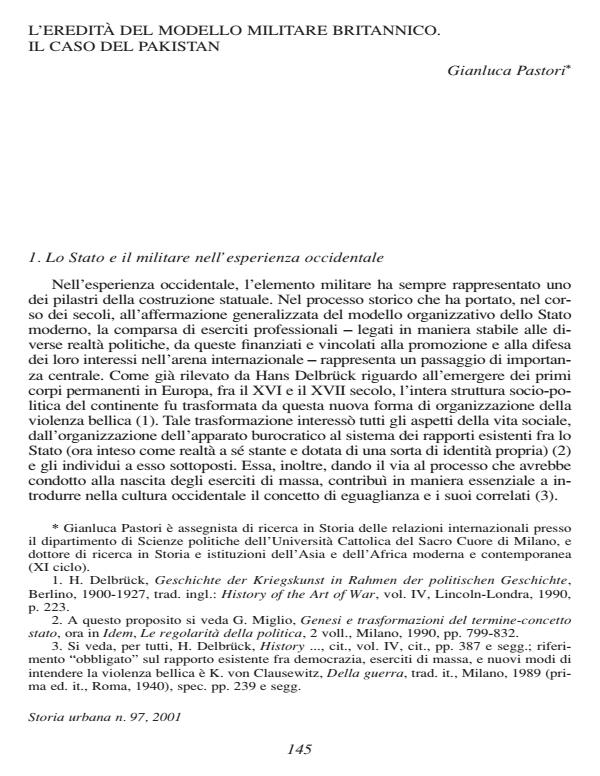L'eredità del modello militare britannico. Il caso del Pakistan
Journal title STORIA URBANA
Author/s Gianluca Pastori
Publishing Year 2003 Issue 2001/97
Language Italian Pages 22 P. File size 93 KB
DOI
DOI is like a bar code for intellectual property: to have more infomation
click here
Below, you can see the article first page
If you want to buy this article in PDF format, you can do it, following the instructions to buy download credits

FrancoAngeli is member of Publishers International Linking Association, Inc (PILA), a not-for-profit association which run the CrossRef service enabling links to and from online scholarly content.
The process which led to the creation of a "rational" and "a-political" military machinery has been an essential step in the development of the modern Western state. According to the traditional historiography, this process started, in Britain, in 1640, with the approval of the Self denying ordinance, banning MPs from having military commands in the national army. Anyway, it took a long time, even in Britain, to clearly subordinate the armed forces to the political power. From this point of view, the military structure transferred to India in 1858, after the crushing of the "great mutiny", has not been a true "a-political" one, but still reflected the strong "inward approach" adopted by the East India Company in the dealings with its subjects and the local powers. Neither the pre-war reforms (mainly the Kitchener’s one, in 1902), nor the post war ones, ever changed this approach, which led, after the Partition in 1947, to the emergence of a similar "inward" orientation in the new born Pakistani army. In this perspective, General Ayub Khan’s putsch, in 1958, has been the clearest sign of the very special relationship emerged in the country between its civil and military structure, a very special relationship still existing behind the bloodless seizure of power by general Musharraf, in 1999.
Gianluca Pastori, L'eredità del modello militare britannico. Il caso del Pakistan in "STORIA URBANA " 97/2001, pp , DOI: